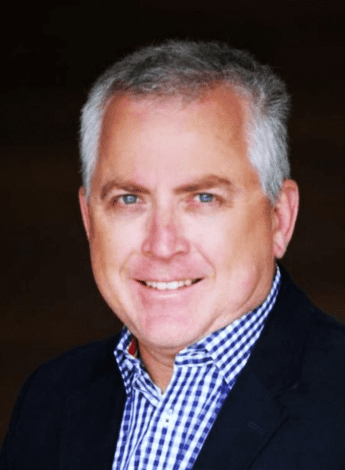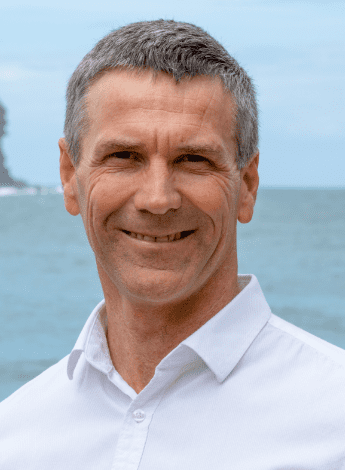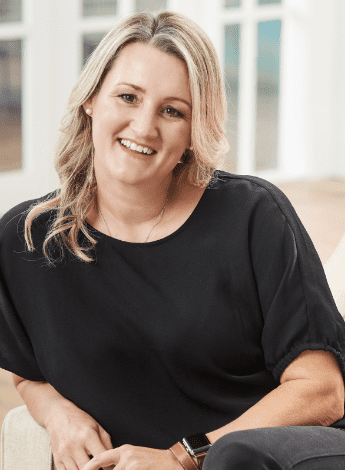
Time to call in the coach?

COACHING Three top business coaches—Antony Hirst, Paul Wright and Jade Scott—answer key questions about when to call in a business coach, what to look for in a coach and what you might expect from the relationship between business owner and business coach.
When would you recommend approaching a business coach?
Antony Hirst: Sooner rather than later. I think it’s well worth seeing a business coach in the very early stages of your business to set up the right processes, systems and directions.
That way, you don’t spend time and energy doing the wrong things.
Paul Wright: When I had my health practices, I was slow to take on a coach/mentor, which is one of my biggest regrets.
If I could have my time again, I would have a mentor from the day I opened my first practice—and even six months before, if I could afford it.
After nearly 30 years in business, I am still in multiple mentor and/or mastermind groups.
Jade Scott: When you’re caught in the daily grind and feel like you’re carrying the world on your shoulders, that is the ideal time to seek out a business coach.
Running a clinic can be lonely and responsibility fatigue is real.
That is when finding an adviser to offer a fresh perspective is needed the most, one that can strategically help with the next steps or encourage your existing culture and leadership to share the load.
What is typically involved when seeing a business coach?
Antony: Typically, it’s about having a connection with someone who clearly understands what you’re trying to achieve and where your skill set lies.
In some respects, it is the same as the relationship between a patient and a physiotherapist.
Paul: There are many different mentor structures.
However, the best coaches will do three things: create a plan to prescribe exactly what the owner should be working on next, give you access to tools (the coach should be able to provide you with a vault of tools and strategies to achieve your goals) and provide help when you need it.
Jade: Business coaching is like unpacking a heavy backpack.
We dig into your challenges, ambitions and fears, then map out a route that aligns with your goals.

Antony Hirst.
It’s not just about quick fixes—it’s about cultivating resilience, finding clarity and building a business that you’re proud to lead.
The most important thing is finding a coach who aligns with your values and is relentless in helping you achieve your endgame.
Why do you think coaching is important to a physio business?
Antony: Understanding and being able to read a balance sheet and a profit and loss statement helps. It is important to be aware that analysing the numbers is just as important as the customer service and the clinical care that the patient receives.
Paul: There are two key drivers of every successful physiotherapy practice—available market and available labour—meaning that there must be enough demand for the specific physio service you provide and there must be a sufficient number of therapists available in your area to deliver that service.
I wish someone had taught me this 30 years ago.
Jade: A successful physio business balances clinical excellence with strong leadership and adaptability.
It’s about creating a culture that prioritises patient care, fosters team growth and doesn’t shy away from tough decisions.
Remember, growth doesn’t come from playing it safe; it’s forged in the fires of challenge and change.
The best reflection of a successful business is its leader. That’s why an investment in both business coaching and leadership development are crucial.
How long would you typically work with a physio business owner?
Antony: Every business owner has different needs and wants.
Some I work with only for a month or two, while with others it is on an ongoing basis for many years. It comes down to what the business owner is trying to achieve in conjunction with the value they see in my experience, advice and service.
Paul: Some clients have been part of our programs for over a decade; others get what they need in three to six months and move on.
We tell our clients to stay for as long as they are getting value— it’s as simple as that.
Jade: I’m a little different from most business coaches in that I don’t work en masse.
I’m not good with setting boundaries so I prefer to partner with a select few clinic owners or deliver my content through courses and online programs.
I still own multiple, busy clinics and am juggling two children in primary school—my approach supports my lifestyle. I’m proof that it can be done.
In a one-on-one capacity, I typically work with three to four physio business owners at any one time for a minimum of three months.
This gives us the time to tear off the bandaids, implement meaningful changes and track progress.

Paul Wright.
It’s about sustainable growth through implementing a clear career pathway and incentive structure that support the team long-term, not just quick wins.
Alternatively, my leadership and business courses run four to five times per year.
What are the costs involved when seeing a business coach?
Antony: Costs can range from a few hundred dollars through to thousands.
Some coaches charge by the hour and others have longer-term programs. There’s a fair degree of variation within the market, which is good.
Paul: Business coaching is not a ‘cost’; it is an ‘investment’ and if you have the right coach your investment will be repaid many times over.
However, our programs range from $97 to $3500 per month.
Jade: Costs vary based on the scope of work and the coach’s expertise, ranging from a few hundred for group sessions to several thousand dollars per month for one-on-one sessions or face-to-face courses.
Like anything, you get what you pay for.
But here’s the truth: the investment you make in coaching is an investment in your future. It’s about building a business that leaves not only an impact, but a lasting legacy.
The end goal is a business that works without you and a valuable asset that someone is willing to buy when you are ready to sell.
What do some of the most successful physio owners do?
Antony: Most successful and profitable physiotherapy clinic owners have some form of adviser.
They understand what patients want and need very well and they value what they do.
They have a business plan and stick to it and they spend time working on their business, not just in it. I know it’s a cliché but it’s true.
Paul: Our most successful clients spend money to save time and are fast implementers.
They understand how valuable mentoring is as a time saver, always ask for help and resources when they need it and take action fast.
Jade: Successful clinics are led by owners who aren’t afraid to make bold decisions.
They focus on creating a culture that encourages accountability and growth, while also embracing the unique needs of their teams—whether that’s through flexible work arrangements, performance-based incentives or ongoing professional development.
My greatest fear for physios is the outdated commission structures.
The ‘base or percentage, whichever is higher’ model sets optimistic clinic owners up for failure.
The goal should be sustainable profit coupled with retaining happy staff. It must be a win–win.
What’s your advice when looking for a business coach?
Antony: Find someone who has considerable experience, who comes recommended by another owner and who you feel comfortable working with, without overcommitting at the start.
Paul: Dealing with health professionals and their teams requires a specific level of understanding.
Always go for a mentor who has extensive experience in healthcare and who has personally achieved what you want to achieve in your business and life.
Jade: Find a coach who understands the unique challenges of the healthcare industry and isn’t afraid to call it like it is.
You need someone who can help you build a business that’s not just profitable but also aligned with your values and vision.
A great coach will be your mirror, your guide and, sometimes, your biggest challenger.
Choose someone who leads by example with tried-and-tested processes that can be reproduced easily.
Learn from someone else’s failure so you can fast-track your own success.

Jade Scott.
What area of business coaching do you specifically focus on?
Antony: I really try to upskill the business owner in all aspects, from the financials to understanding the importance of customer service, appropriately valuing what the physiotherapist does and, in many cases, gaining an awareness that one day they will sell their business.
They won’t do it forever.
Paul: The focus of the Practiceology program has always been on helping health business owners to earn more, work less and enjoy their lives.
I am determined to return practice owners to their families; we can always make more money, but I want to help them live better lives, look back on their business career with pride and not regret missing out on important life events.
Jade: My sweet spot is leadership and team culture. I help clinic owners create environments where their teams can flourish.
When your team is engaged and motivated, everything else falls into place.
It’s about building a workplace that’s not just productive but also deeply fulfilling. This ties heavily into my remuneration model.
Incentivising people to achieve must be linked to a solid career pathway and bonus structure—that’s my wheelhouse.
>> Antony Hirst APAM established a group of clinics called Beleura Health Solutions on the Mornington Peninsula, Victoria, after graduating in 1992 and sold them to Zenitas Healthcare in 2018. Since then, Antony has spent most of his time helping colleagues achieve commercial sustainability. He is the current deputy chair of the APA Business national group.
>> Paul Wright is a physiotherapist, former owner of multiple allied health clinics in Australia, author of Amazon bestseller How to run a one minute practice and founder of the Practiceology health business freedom program. Paul has helped thousands of allied health business owners in 57 countries earn more, work less and enjoy their lives.
>> Jade Scott is a business strategist, keynote speaker, clinic owner, osteopath and founder and CEO of GrowthRx. With advanced postgraduate training from Melbourne University and Harvard Business School and over 20 years’ experience, Jade specialises
in leadership development and strategic business growth for allied health clinics.
© Copyright 2024 by Australian Physiotherapy Association. All rights reserved.





